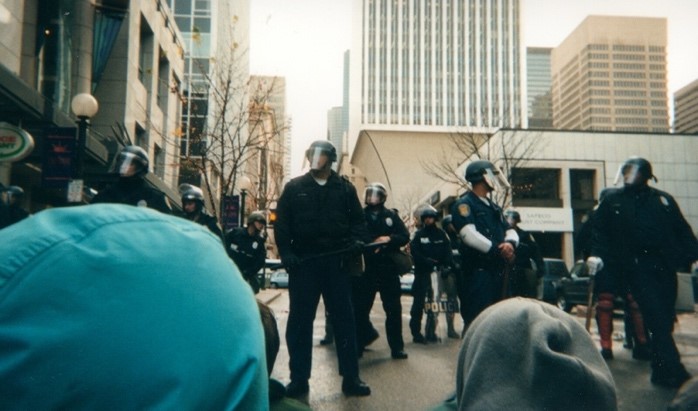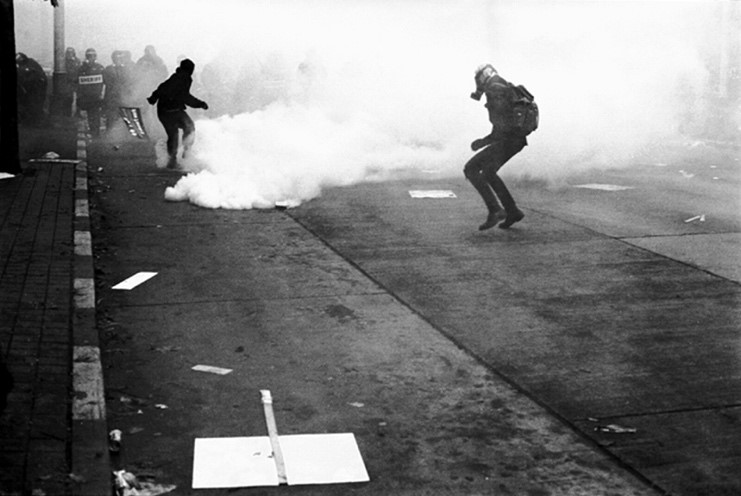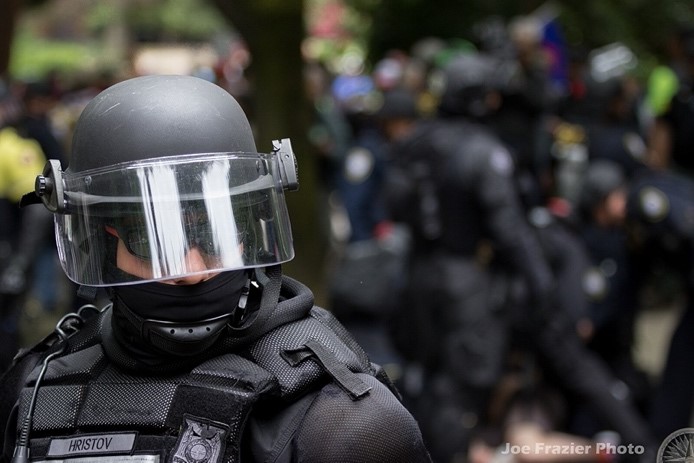
By Steve Pomper
As a cop, I strived to behave with integrity and trusted my peers but expected my superiors to do the same. I obviously worked with far more peers than for superiors, but I experienced the most disillusionment from superiors whose actions could inflict moral injuries on subordinates.
Having once-trusted superiors lie to you, betray you, and then watch them climb the promotional ladder, can liquify your profession’s ground beneath your feet. And while that off-balance sensation will likely, eventually fade, the moral injury you suffer may endure.
I’m not going to go into details, as I did that in my book De-Policing America: A Street Cop’s View of the Anti-Police State (Post Hill Press, 2018). And don’t get me wrong. Most superiors I knew, were decent, reasonable people who acted as I’d expected an honorable person in authority to. But this is not about them. It’s about leaders whose negative behavior so profoundly changes a subordinate’s view of them that it inflicts a moral injury.
The “superior” category includes other government officials. When people are in positions to pass judgment on your behavior, and you observe their lack of integrity is their MO, this can also cause a moral injury by shredding mutual trust. This is especially true in defund the police jurisdictions that restrain cops from policing properly and effectively. And when officers manage to do their job, they can find themselves disciplined, fired, or even prosecuted—adding moral injury to insult.
So, non-clinically speaking, what is a moral injury? Previously, it dealt with the military, especially combat, but this issue also affects law enforcement officers. It occurs when someone feels forced to violate, or someone you trust violates, core values.
Though this dive is admittedly not deep, let’s take just two conditions for our purposes. Moral injuries can happen when cops feel forced by superiors to perform in a way they know fails to protect people effectively. Every time officers don’t make arrests that they know they should to protect the public but aren’t allowed, they suffer a spiritual wound. It also happens when trusted superiors betray you even though you know you performed as you were trained.

Seattle Nov. 30, 1999, WTO riots
According to an article in Psychology Today, more clinically, “Moral injury is the social, psychological, and spiritual harm that arises from a betrayal of one’s core values, such as justice, fairness, and loyalty. Harming others, whether in military [or police] or civilian life; failing to protect others through error or inaction; and failure to be protected by leaders, especially in combat—can all wound a person’s conscience, leading to lasting anger, guilt, and shame, and can fundamentally alter one’s world view and impair the ability to trust others.”
I hadn’t thought about this issue in such specific terms, but I immediately recognized the sting of it. During Seattle’s 1999 WTO riots, some muckety-muck ordered officers to man riot lines downtown without helmets (you know—because they look all mean and stuff). Our captain wasn’t having it. She rejected that order, which would have put her officers at increased physical risk. So, we donned our helmets and marched (literally) off to the downtown riots—better prepared and trusting in that leader.

Seattle Nov. 1999 WTO riots
That captain put us above and career concerns. Instead of politically blinded leaders causing officers moral injury, an honorable leader led from the moral high ground. That’s why, more than 20 years later, I remember her fondly, the memories of another leader’s reckless decision blunted.
Moral injuries can also happen collectively like when the federal government inflicts a politically motivated DOJ consent decree on a proven excellent police department. These moral injuries occur because the officers know they don’t deserve the bogus decree and that they’re being used as political pawns by selfish politicians and bureaucrats who are supposed to protect them but instead only seek increased power.

An article on the FBI website notes ancient Greco-Roman warriors’ recognition of this phenomenon. A “moral injury… is the effect of a critical situation wherein a person with legitimate and recognized authority betrays what is right.” Of course, officers have no obligation to follow “unlawful” orders. But what if the order is intentionally vague?
For example, what if the recognized authority doesn’t order you to do something “wrong” (like using unnecessary force) but orders you not to do something right (like not enforcing laws you’ve sworn to uphold), thereby allowing criminals to commit crimes and victims to suffer losses or injuries? The moral injury also comes from cops knowing good people are watching them as they fail to do their duty.
Another government look into moral injuries suffered by police comes from the NIH. Results of a study involving “the National Police of Finland… showed that moral injury significantly predicted PTSD as well as its diagnostic clusters (i.e., avoidance, hyperarousal, re-experiencing).”

Portland riots 2017
While we’ve barely broached this topic, it may spur those who want to learn more. Sometimes, it’s hard to deal with an issue effectively until it’s named and defined. Contrary to what cop critics want people to believe, law enforcement officers as a group take their core values seriously. They vehemently resist seeing them undermined and even obliterated and then being expected to go along with the desecration of the criminal justice system.
And when leaders force officers to violate or even compromise those values, a moral injury may result with life-altering consequences. Being aware that such psychological harm exists could help officers mitigate or even prevent it from devastating them. They can see and feel the effects of a moral injury in real time and do something about it.